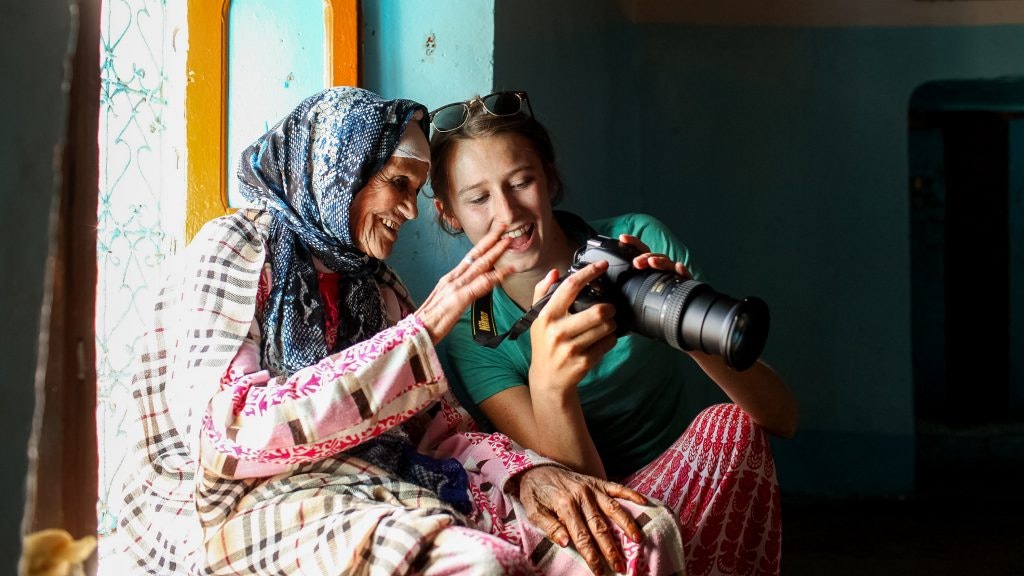In this article, we highlight six statistics that demonstrate why travel is a valuable addition to any educational program. From boosting academic engagement to gaining personal growth, these stats will convince you that taking students abroad isn’t just a trip—it’s an investment in their future.
Traveling with students offers more than a break from routine; it’s an opportunity to inspire curiosity, broaden horizons, and connect classroom lessons to the real world.
Educational travel helps students build essential skills, form lasting memories, and develop a global perspective that sets them up for success in school, careers, and life. Whether it’s their first time on a flight or an opportunity to explore new cultures, these experiences can have profound and lasting effects.
>>Apply for 15% off your next Summer Program through our Teacher Appreciation Program!
Key Takeaways:
- Over half of students who travel internationally report better grades and a stronger interest in school, often continuing into higher education or global internships.
- Group travel experiences help students form friendships, gain confidence, and develop empathy by interacting with new people and cultures.
- Educational travel often includes bundled packages (flights, meals, lodging), payment plans, and classroom resources to make planning easier and more aligned with curriculum goals.
- Travel can spark career interests, enhance resumes, and give students an edge in college and job applications by exposing them to global perspectives and real-world experiences.
1. International Travel Improves Student Engagement and Academic Success
Traveling internationally offers students opportunities to connect learning with real-world experiences. Studies reveal that participating in programs abroad can increase student engagement with school subjects and lead to better grades.
For example, over half of students who traveled internationally reported improved academic performance, and many pursued higher education, such as studying abroad or enrolling in global internships. Destinations in Europe, Canada, and beyond provide a mix of adventure and education, making these trips both fun and rewarding.

Canada has almost 9% of the world’s forests.
2. Educational Travel Encourages Social Connections and Personal Growth
Traveling as part of a group allows students to build friendships and gain confidence in interacting with others. Meeting fellow travelers during tours or volunteering trips helps kids and teens develop social skills that extend beyond the classroom.
Whether it’s a person traveling for the first time or a seasoned explorer, these experiences create meaningful connections. Students discover new cultures while creating lifelong bonds with their peers and families who often join them on these journeys.
3. Educational Travel Offers Practical Benefits for Teachers and Students
Programs designed for educational travel often include comprehensive resources for educators, making planning easier. For example, schools can sign up for payment plans that allow families to pay in installments.
Flights, accommodations, and meals are bundled into packages that save time and simplify logistics. Many websites also assist with providing support for requests related to course customization or volunteer opportunities, ensuring every trip aligns with specific learning goals.
 Travel also fosters non-cognitive skills development in students who learn outside of the classroom.
Travel also fosters non-cognitive skills development in students who learn outside of the classroom.
4. Travel Helps Students Discover New Opportunities for the Future
Traveling provides more than just a summer vacation—it can shape students’ futures. For instance, internships abroad expose students to career paths they might not encounter in the classroom.
These experiences help students gain advantages in the job market and can assist them in discovering fields of study or work they are passionate about. Completing a program or course abroad also makes students stand out on applications and resumes, whether they’re applying for college or pursuing their first job.
5. Affordable Travel Packages Make It Easier for Schools to Plan Trips
Traveling internationally is more accessible than ever, thanks to affordable packages that cater to schools. Tons of providers offer deals on flights, accommodations, and tours, making it easier for schools to organize trips.
These packages are especially useful for families and schools managing tight budgets. By purchasing group packages or enrolling early, students and educators can save money while still enjoying exciting destinations across the globe.
6. Travel Is a Fun and Rewarding Way to Enhance Classroom Learning
Educational travel adds excitement to learning by taking students out of the classroom and into the world. Tours often combine adventure and education, offering students the chance to explore destinations that align with their school curriculum.
Whether it’s Europe, Canada, or a local program, students experience hands-on learning in a fun and engaging way. These trips often include activities like volunteering, where kids can connect with the local culture while making a positive impact.
As soon as students start chatting, and questioning, and daydreaming about the far-off corners of the world they’ll get to experience, their engagement is piqued and learning process has officially begun. You can capitalize on that by incorporating trip-related content in your classroom throughout the school year, and even after the program. The sooner you decide to travel, the sooner you’ll get your hands on Rustic’s educator’s guide, which includes lessons and activities to do with your students before to better prepare them for the experience (lesson planning made easy—score!).
Put these pre-trip educational resources to use early and often with your students. Jump-starting their minds in school will prime students for learning on the trip and deepen the impact of their experiences abroad. There are also post-trip resources designed to students process their travel experience when they return.
Creating and teaching lessons that last years after graduation, and (as cheesy as it sounds) making the world a better place—that’s why we’re educators. Traveling with your students is a perfect way to leave a lasting positive impact on their lives.
Visit Rustic Pathways Group Travel to learn more about creating the perfect trip for your students.
